#houston criminal lawyers
Text
Common Factors Of Divorce Lawyer & Criminal Lawyer
Legal Expertise:
Both Houston divorce lawyers and criminal lawyers are legal professionals who have undergone rigorous education and training in the field of law. They possess in-depth knowledge of relevant statutes, case law, and procedural rules governing their respective practice areas. Whether navigating the intricacies of family law in divorce proceedings or interpreting criminal statutes and precedent in criminal cases, these lawyers rely on their expertise to advocate effectively for their clients.
Client Advocacy:
At the heart of both professions lies the core principle of client advocacy. Divorce lawyers and criminal lawyers Houston Tx serve as staunch advocates for their clients' interests, working tirelessly to protect their rights and achieve favorable outcomes. Whether negotiating settlements, litigating in court, or providing legal counsel, these lawyers prioritize the needs and objectives of their clients, guiding them through the complexities of the legal system with skill and dedication.
Website: https://www.stephenlekasattorneyatlaw.com/
#Houston_divorce_lawyer
0 notes
Text
We’re skilled at gathering all the important details, from photos of the accident scene to witness statements. Plus, we’re here to guide you every step of the way, making the process as smooth as possible for you. For more information contact our personal injury lawyers and call us today at 713-930-2550.
#Assault Attorney Houston TX#Assault Lawyer Houston TX#Burglary Attorney#Burglary Lawyer Houston TX#Car Accidents Attorney Houston TX#Criminal Defense Attorney#Divorce Attorney Houston TX
0 notes
Text
Houston Criminal Defense Attorney
Texas Criminal Defense Attorney Erik Nelson. Experienced Aggressive Texas Trial Lawyer. 13+ years experience, hundreds of cases won.
#Houston Criminal Defense Attorney#Criminal Defense Attorney Houston#DUI Attorney Houston#DWI Lawyer Houston#Criminal Attorney Houston#Criminal Defense Houston
1 note
·
View note
Text
Talk to a personal injury attorney today if you wish to understand fully what is pain and suffering in Texas. For more information contact our personal injury lawyers and call us today at 713-930-2550.
#Divorce Attorney Houston TX#Car Accidents Attorney#Criminal Defense Attorney#Child Custody Attorney#Car Accidents Attorney Houston TX#Burglary Lawyer Houston TX#Burglary Attorney Houston TX#Burglary Attorney#Assault Lawyer Houston TX#Assault Attorney Houston TX
0 notes
Text

Austin Appeal Lawyers
The Law Office of Robert Sirianni works primarily on civil and criminal appeals in Austin Texas. Appeals are notorious for being complex, especially in Texas Courts of Appeal. We offer a team of Texas appellate lawyers who focus on appeals cases to represent individuals who require an experienced appellate law firm. They are experienced in preparing writs, briefs, as well as oral arguments to be submitted presented before the Texas Supreme Court on behalf of their clients. Return to our main Texas appeal page or contact our appeal lawyers for Texas cases at (512) 318-2968. Or, please fill out the contact form to talk with a appeals lawyers in Texas. Texas Appellate litigation is a field different from trial law and requires different skills. The Texas appeal lawyers at our firm are professionals dedicated to such cases.
0 notes
Text
Contact Our Best Houston Car Wreck Lawyer
Suppose you or a loved one has been involved in a Houston auto accident. In that case, it is important to speak with a Houston car wreck lawyer to discuss your legal options and to ensure that you are fairly compensated for your injuries. The auto accident attorneys at our firm have years of experience representing victims of car accidents and their families and can help you recover the compensation you deserve. Contact us today to schedule a free consultation.
#personal injury cases#wrongful death attorney#attorneys#car wreck lawyer houston#car accident lawyers houston#car accident lawyers in houston#houston personal injury lawyers#houston personal injury attorney#car accident attorney#criminal law#car accident chiropractor#history#car wreck lawyer houston tx#car wreck lawyer#18 wheeler accident lawyer
0 notes
Text
Grand Jury Finds No Probable Cause in Lime Squeezer Assault Case
Grand Jury Finds No Probable Cause in Lime Squeezer Assault Case
Houston, TX (Law Firm Newswire) August 04, 2022 – Ceja Law Firm PLLC today announced that a Houston Grand Jury refused to indict our client for aggravated assault with a lime squeezer.
The defendant, a 48-year-old homemaker, was with her family at a roadside stand to buy corn in a cup. The complaining witness was also at the roadside stand with her family. The parties had been acquaintances for…
View On WordPress
0 notes
Text

Born on 16 February 1941 in Austin, TX, Dick DeGuerin is an American criminal defense attorney based in Houston. In 1994, DeGuerin was named Outstanding Criminal Defense Lawyer of the Year by the State Bar of Texas Criminal Justice Section.


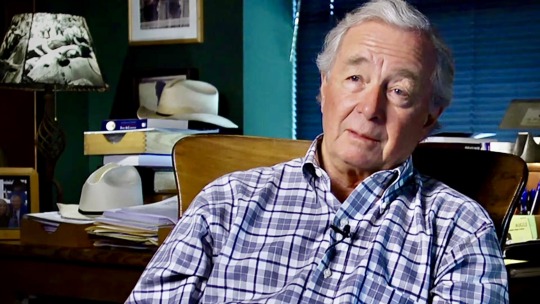

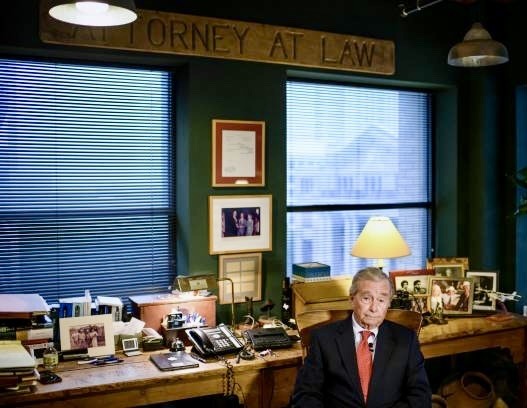
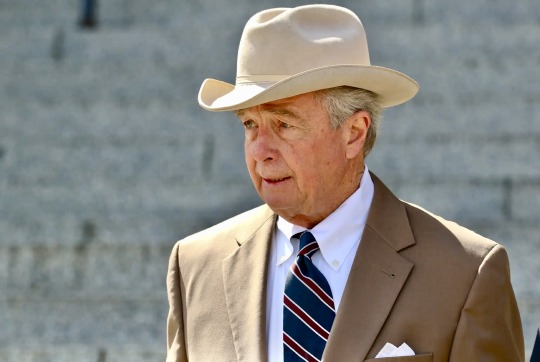
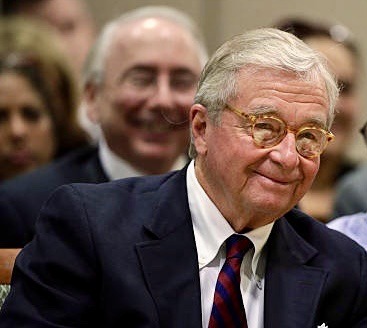


113 notes
·
View notes
Text
Understanding the Role of a Divorce Lawyer
Legal Expertise: A Divorce Lawyer in Huston is a legal professional specializing in family law and divorce proceedings. Their primary role is to assist clients in understanding their rights, responsibilities, and options under the law. With a deep understanding of the legal intricacies surrounding divorce, they can help their clients make informed decisions.
Objective Advice: Emotions often run high during a divorce, and decisions made in the heat of the moment can have lasting consequences. A divorce lawyer provides objective advice, helping clients separate their emotions from the legal process. This impartial perspective ensures that decisions are based on legal considerations rather than emotional reactions.
Mediation and Negotiation: Divorce lawyers are skilled negotiators, striving to reach fair and amicable settlements between parties. Through mediation, they facilitate discussions and help couples find common ground on issues such as asset division, child custody, and alimony. This collaborative approach can often lead to faster and less contentious divorces. Website: https://www.stephenlekasattorneyatlaw.com/
#houston criminal lawyers#divorce lawyers in houston free consolation#criminal attorney houston tx#personal injury lawyer in houston texas
0 notes
Text
If you’re looking for a law firm that will stand by your side and provide top-notch legal services, look no further than Leeds Law Firm. We can also represent you in Misdemeanor, Criminal Trespass, and DWI. For more information contact our personal injury lawyers and call us today at 713-930-2550.
#Divorce Attorney Houston TX#Car Accidents Attorney#Criminal Defense Attorney#Child Custody Attorney#Car Accidents Attorney Houston TX#Burglary Lawyer Houston TX#Burglary Attorney Houston TX
0 notes
Text
If you’re grappling with questions about the taxability of your settlement, our legal professionals stand ready to guide you with clarity and assurance. For more information contact our personal injury lawyers or call us today at 713-930-2550.
#Assault Attorney Houston TX#Assault Lawyer Houston TX#Burglary Attorney#Burglary Attorney Houston TX#Burglary Lawyer Houston TX#Car Accidents Attorney#Car Accidents Attorney Houston TX#Child Custody Attorney#Criminal Defense Attorney#Divorce Attorney Houston TX
0 notes
Text
Civil rights lawyer Charles Ogletree, an Obama mentor, dies at 70
07Auguat2023
Civil rights attorney Charles Ogletree, a Harvard Law School professor who mentored the Obamas, has died at age 70. The cause of death was Alzheimer's disease, Harvard Law School said. Ogletree founded the Charles Hamilton Houston Institute for Race and Justice and the Criminal Justice Institute at the law school. His clients included Anita Hill, Tupac Shakur, and the victims of the 1921 Tulsa race riots. "Charles was a tireless advocate for civil rights, equality, human dignity and social justice," Harvard Law School Dean John F. Manning said in a statement. "He changed the world in so many ways, and he will be sorely missed in a world that very much needs him." [CNN]
6 notes
·
View notes
Text
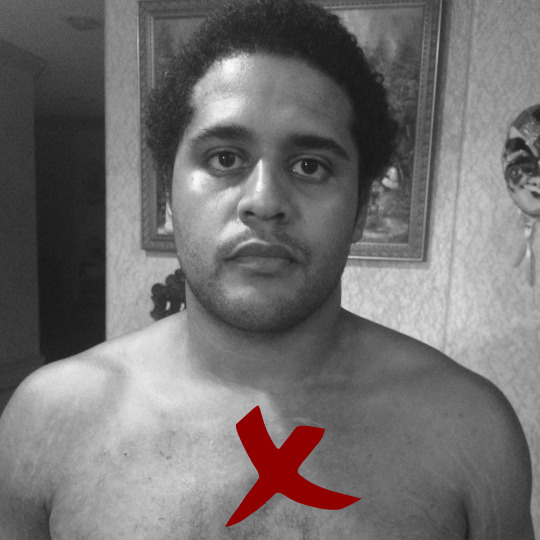

From: "Naked Man Shot In Hospital By Houston Cop Gets $900K Settlement" by TXO Staff Writer Michelle Pitcher:
When Alan Pean drove himself to Houston’s St. Joseph Medical Center in August 2015, he got into a minor car accident. He wasn’t thinking straight—he was trying to check himself in for mental health treatment. He had a history of bipolar disorder and, according to court documents, was seeking help for acute emotional distress—he’d hallucinated that men were trying to invade his apartment. But in the hospital, things would only get worse. The day after he was admitted, Pean was shot in the chest in his room.
Pean was unarmed and naked at the time of the shooting. He survived after emergency surgery, only to be hit with criminal charges for alleged assault of the armed guards who charged into his hospital room. His lawyers later described that ultimately unsuccessful prosecution effort as a calculated conspiracy to absolve the man who had shot and nearly killed Pean: an off-duty Houston Police officer. In October, the City of Houston agreed to pay out $902,500—one of the highest settlement amounts in the city’s recent history—to Pean, whose father and two brothers are working as or training to be physicians, and who identifies as Black.
For Pean’s brother Christian, the seven-year battle for compensation shows how “deliberately slow the wheels of justice turn.” He said the family still struggles to understand the lack of accountability for the officers involved in the case. “We do view the settlement as a modicum of accountability from the City of Houston for the atrocity that took place under their watch,” Christian said. “We continue to grapple through legal proceedings with the hospital system and the security company that put protocols in place that led to a response to a mental health crisis with bullets instead of healthcare. The country still needs a public health approach to mental health and justice reform to improve everyday outcomes for communities and police officers alike.”
Read more at the Texas Observer.
20 notes
·
View notes
Text
Wonder why his ex-wife felt the need to keep her pregnancy a secret and why the help she received in ending the pregnancy “meant the world to her”
https://www.washingtonpost.com/politics/2023/03/10/texas-abortion-lawsuit/
A Texas man has filed a wrongful-death lawsuit against three women who allegedly helped his ex-wife obtain abortion pills and terminate her pregnancy, in the first case of its kind to be brought since the Supreme Court overturned Roe v. Wade.
The lawsuit could signal a new phase in antiabortion strategy, with conservatives scrambling to crack down on growing abortion pill networks that have helped pregnant people access medication abortion in states where the procedure is banned.
The plaintiff, Marcus Silva, is represented by Jonathan Mitchell, a conservative lawyer who was the architect of a novel 2021 Texas abortion ban, and Briscoe Cain, a Republican member of the Texas House. The lawsuit states that helping someone obtain an abortion qualifies as murder under the state’s pre-Roe abortion ban that took effect this summer, allowing Silva to sue under the wrongful-death statute.
Silva’s civil case could result in the women being forced to pay over $1 million in damages. The district attorney in Galveston, Tex., will decide separately whether to charge the women in criminal court.
Silva alleged that in July 2022, when the couple were still married, his wife became pregnant but concealed it from him.
Two of the defendants allegedly exchanged text messages with Silva’s wife, discussing how and where she could obtain the medication to cause an abortion. A third defendant arranged for the delivery of the medication, the complaint alleged.
“We have pills here in Houston,” read a message that one of the women shared with the group, according to the complaint. “So no you wouldn’t have to fly. You could get them from us or your could order some online.”
Abortion is now banned or under threat in these states
As the person seeking the abortion, Silva’s ex-wife is exempt from civil and criminal liability, the complaint notes, and Silva is not pursuing any claims against her. The couple divorced last month, according to the court document. None of the three women named as defendants, or their lawyers, could be reached for comment on the accusations.
The complaint said Silva also intends to sue the manufacturer of the mifepristone pill allegedly used in the abortion if that information is made available in discovery.
“Anyone involved in distributing or manufacturing abortion pills will be sued into oblivion,” Cain, one of Silva’s lawyers, wrote in a news release. “That includes CVS and Walgreens if their abortion pills find their way into our state.”
Since the June Supreme Court decision, abortion rights activists have ramped up efforts to ship abortion pills — a two-step regimen of mifepristone and misoprostol that is widely regarded as safe — into states with strict new bans, violating the bans as they work with rapidly expanding international suppliers as well as U.S.-based distributors.
The Texas judge who could take down the abortion pill
These growing pill pipelines have presented a major challenge for the antiabortion movement. Many prosecutors don’t want to charge people for abortion-related crimes, while others have struggled to find cases.
Abortion pills are usually sent to pregnant people through the mail, making their distribution hard to track. Prosecutors are also limited to bringing charges against people who help facilitate the abortion, with abortion bans currently in effect exempting people seeking abortions from criminal prosecution or legal liability.
Texas has emerged as a hot spot for novel approaches to restrict access to abortion pills. U.S. District Judge Matthew Kacsmaryk, based in Amarillo, could soon rule on a lawsuit filed by antiabortion groups against the Food and Drug Administration that could take mifepristone off the market, a ruling with the potential to upend abortion access nationwide.
Antiabortion groups within the state have also begun their own investigative efforts. Texas Right to Life has created a team of advocates assigned to gather information on citizens who might be distributing abortion pills illegally.
Silva’s complaint includes as exhibits many of the text messages allegedly exchanged among the group of women. In the texts, one person shares information provided by an organization that ships pills that cause abortions and says the woman can take them at her home.
“Your help means the world to me,” responds a woman identified in the complaint as Silva’s ex-wife.
The texts also show discussions about the date of the woman’s last period, what the medication abortion will feel like and when she is planning to take the pills.
6 notes
·
View notes
Text
In response to the scandal that engulfed the Houston Police Department's Narcotics Division after a lethal 2019 drug raid based on a falsified search warrant, Harris County prosecutors dropped dozens of pending cases and recommended the reversal of at least five convictions. They said those cases were irredeemably tainted by the involvement of Gerald Goines, the officer who lied to obtain the 2019 warrant that led to the deaths of Dennis Tuttle and Rhogena Nicholas, or similarly dishonest colleagues. But that judgment did not necessarily mean that the defendants recovered cash or cars seized by Houston's corrupt cops under the pretext of enforcing drug laws.
Even in cases that hinged on the trustworthiness of demonstrably untrustworthy cops, The Houston Chronicle reports, prosecutors so far have chosen to keep nearly all of the property seized from defendants. That striking contradiction illustrates the lax rules governing civil asset forfeiture, which allows police and prosecutors to pad their budgets by confiscating allegedly crime-tainted property.
The Chronicle identified "three dozen instances in recent years in which an indicted member of the Squad 15 narcotics unit swore to the facts used to justify a search leading to a cash or vehicle confiscation." The loot, collected over a five-year period, included about $75,000 in cash and several cars. "Records show some or all of the money confiscated during the busts was returned in five cases," the Chronicle reports, "typically after defendants hired lawyers to challenge the forfeitures." But the county has kept the rest of the money and the cars, even though prosecutors consider the evidence that led to the seizures unreliable because it was offered by cops with a record of making stuff up.
In 2018, for instance, Goines and his partner, Steven Bryant—both of whom face state and federal charges in connection with the operation that killed Tuttle and Nicholas the following year—participated in the raid of a "suspected drug house." They arrested Andrew Hebert, claiming they had seen him selling drugs outside the house, and seized $11,000 from him.
Prosecutors decided to drop the case against Hebert in light of Goines et al.'s unreliability. "Circumstances in this case impacted the credibility of material witnesses," they told his lawyer. But Hebert did not get his money back.
Also in 2018, Bryant and his colleagues arrested Christopher White and seized $2,465 from his car, claiming they had "observed him make a crack cocaine sale outside a barber shop." Prosecutors ultimately dropped the charges because of Bryant's involvement but again kept the money.
In 2016, Goines and his colleagues searched a house based on a fictional crack purchase. They seized $2,700 from Andre Thomas, who likewise never got it back.
"Prosecutors are currently reviewing several cases related to Squad 15 to determine if they involve assets that should be returned to members of the community," a spokesman for the Harris County District Attorney's Office told the Chronicle. But they are under no obligation to return anything, because the rules for civil asset forfeitures are much looser than the rules that apply to criminal cases.
To seize property under civil forfeiture laws, police typically need nothing more than probable cause to believe it is somehow connected to criminal activity. The government does not have to charge the owner with a crime, let alone convict him. If the owner does not challenge the forfeiture in court, which frequently costs more than the property is worth, a vague allegation of a criminal nexus is enough to keep the loot.
Prosecutors have voluntarily returned seized property to at least one of Goines' victims. The Chronicle says they "quietly" returned $1,668 to Otis Mallet, whom Goines arrested on crack cocaine charges in 2008. Mallet always maintained that Goines had invented the crack purchase that was the basis for the arrest, which would be consistent with what investigators later discovered about Goines' fabulism. Mallet's conviction was overturned in 2021, after he had served two years of an eight-year sentence.
While keeping Mallet's money would have been plainly unjust, it also would have been perfectly legal. Except in states that require a criminal conviction to complete a forfeiture, the fact that the government does not have enough evidence to prove someone committed a crime is no barrier to confiscating his property.
The Texas Supreme Court underlined that distinction in 2016, when it concluded that the exclusionary rule, which bars the admission of illegally obtained evidence, does not apply to civil actions under Chapter 59, a state law authorizing "forfeiture of contraband." The case involved the seizure of a 2004 Lincoln Navigator from Miguel Herrera, who was arrested after police found drugs in the car. Herrera argued that the search was unconstitutional because the cops did not have reasonable suspicion to pull him over and that the drugs they found therefore should not be considered as evidence to support forfeiture of the car.
The trial court and the appeals court agreed. But the Texas Supreme Court did not, saying "an illegal seizure" of evidence does not "require exclusion in a Chapter 59 civil-forfeiture proceeding." That means drugs discovered during an illegal search based on Goines' lies, although not admissible in any resulting criminal case, could still be used to justify the confiscation of cash found during that search, assuming the owner challenged the forfeiture.
The seizures highlighted by the Chronicle represent just a small piece of Harris County's take from this system of legalized larceny. Last year, the Institute for Justice filed a state lawsuit challenging the county's forfeiture practices. The lead defendant is the Harris County District Attorney's Office—the same agency that is trying to assess and ameliorate the damage done by Goines and his cronies.
The lead plaintiffs in the proposed class action are a Mississippi couple, Ameal Woods and Jordan Davis, who were robbed of $42,300 after they were pulled over by sheriff's deputies on Interstate 10 in May 2019. Woods and Davis were on their way to Houston, where Woods planned to spend the money on a tractor and a trailer for his trucking business. The deputies ostensibly stopped them because they were following another vehicle too closely, although Woods, who was driving, was not cited for that alleged offense. Instead, the cops made off with the couple's life savings.
The district attorney's office filed a forfeiture petition the following month. But Woods and Davis were not notified of the pending action until last August, 27 months after the seizure.
According to the Institute for Justice lawsuit, all of the money Woods and Davis were carrying was obtained legally. The largest share, $22,800, came from Woods' savings. He borrowed $6,500 from his wife and $13,000 from his niece, planning to pay them back after his investment in a tractor-trailer allowed him to expand his business.
The forfeiture petition claimed a drug-detecting dog alerted to the money. But no such dog was present during the stop, which means this alleged canine inspection must have occurred after the deputies already had seized the cash, supposedly based on probable cause to believe it was related to illegal activity. Research has found that as much as 90 percent of U.S. currency carries traces of cocaine, which therefore hardly counts as evidence that the current owner is involved in drug dealing.
"What happened to Ameal and Jordan routinely happens to other property owners in Harris County," the lawsuit says. After reviewing 113 civil forfeiture petitions filed by county prosecutors since 2016, the Institute for Justice found that all of them were "based on a form affidavit written by an officer who was not present at the time and place of seizure." Seventy-nine of the affidavits included identical or closely similar language saying "a K-9 Unit gave a positive response for the odor of narcotics" when presented with the property. Eighty affidavits were written by the same officer who supported the petition seeking forfeiture of the money seized from Woods and Davis, and 92 "involved a dog alert that allegedly was obtained after police seized property."
The lawsuit argues that Harris County's racket violates the state constitution in several ways: It involves seizures that are not based on probable cause; it does not give property owners a prompt post-seizure hearing; it relies on "hearsay testimony" and "cut-and-paste allegations"; it gives law enforcement agencies a financial incentive to seize first and ask questions later (if ever); and it requires owners to prove their innocence.
This process is so daunting and burdensome that 60 percent of property owners give up without a fight. That works to the advantage of local law enforcement agencies. From 2018 to 2020, the Institute for Justice notes, "Harris County prosecutors added $7.7 million to their budgets" through civil forfeiture. During the same period, "law enforcement agencies in Harris County added $15.9 million to their budgets," and "more than $7.5 million of that money was used to pay salaries and overtime to police officers—the same officers who make decisions about whether to seize property."
Harris County District Attorney Kim Ogg wants credit for investigating the blatantly corrupt behavior of Goines and other Houston narcotics officers. Meanwhile, her office, which is hardly without blame for prosecuting falsely accused defendants, is eagerly engaged in money grabs that victimize innocent people and make a mockery of justice.
#article#full text#civil asset forfeiture#police brutality#police violence#us policing#police#corruption#texas#houston
11 notes
·
View notes
Text
The Legal Guardian: Criminal Attorney
Defender of Rights:
A criminal attorney is, above all, a defender of an individual's rights. From the right to a fair trial to protection against self-incrimination, these legal professionals act as guardians, ensuring that their clients' constitutional rights are upheld throughout the legal process. The Best Divorce Lawyers in Houston use the proper rights.
Navigating Legal Complexity:
The field of criminal law is intricate, with statutes, precedents, and procedures that can confound the uninitiated. Criminal attorneys possess a deep understanding of these complexities, enabling them to navigate the legal landscape and build robust defense strategies.
Custom-Tailored Defense:
No two criminal cases are alike. A skilled criminal attorney Houston Tx crafts defense strategies tailored to the unique circumstances of each case. Whether facing charges related to theft, drug offenses, assault, or white-collar crimes, the attorney's ability to customize their approach is paramount.
Website: https://www.stephenlekasattorneyatlaw.com/
0 notes